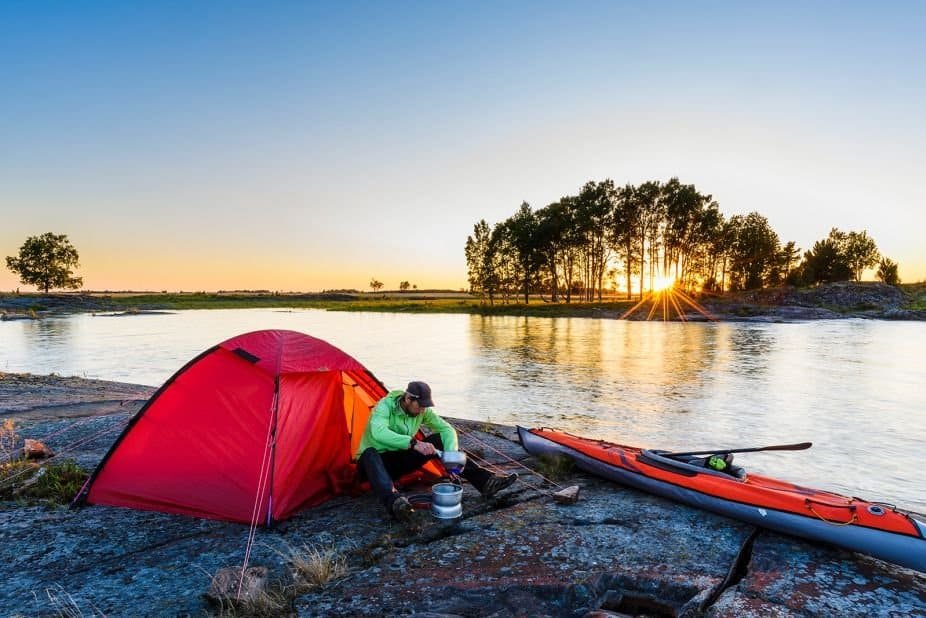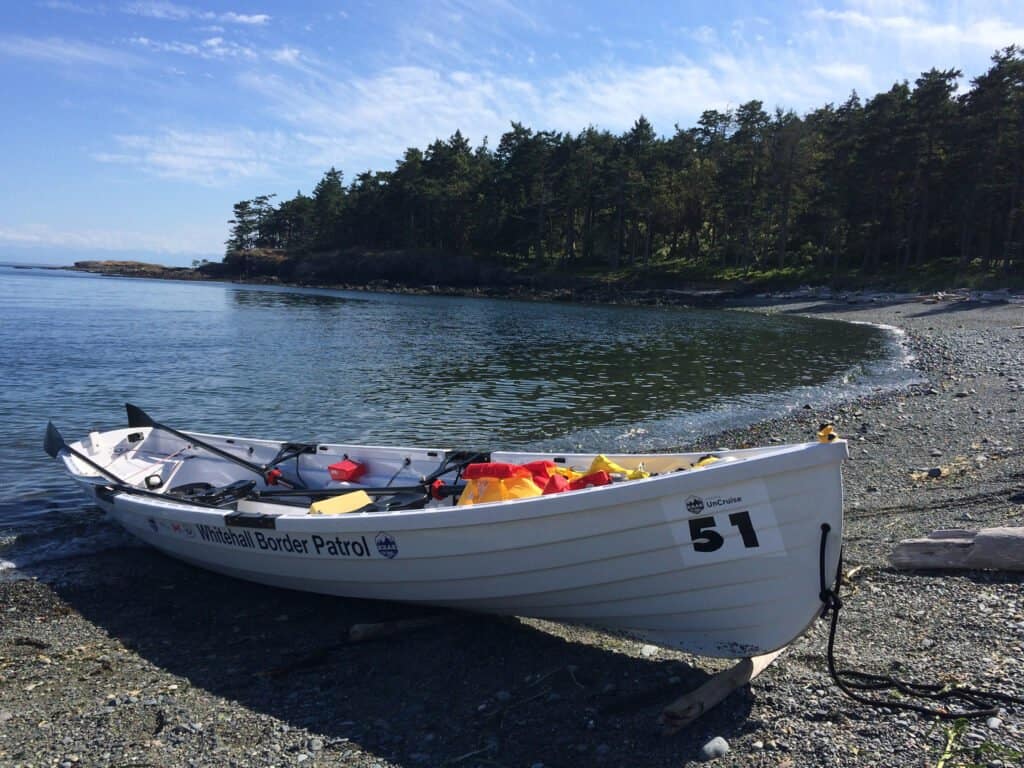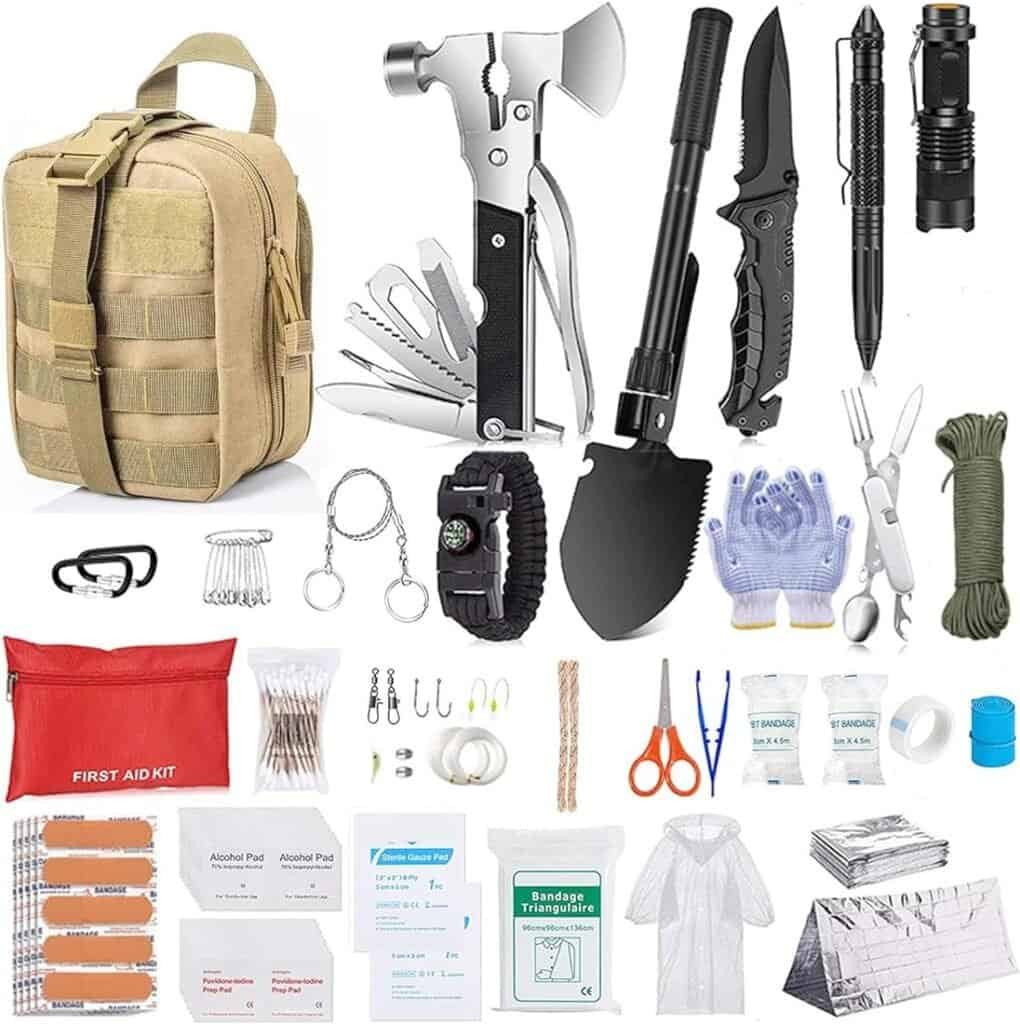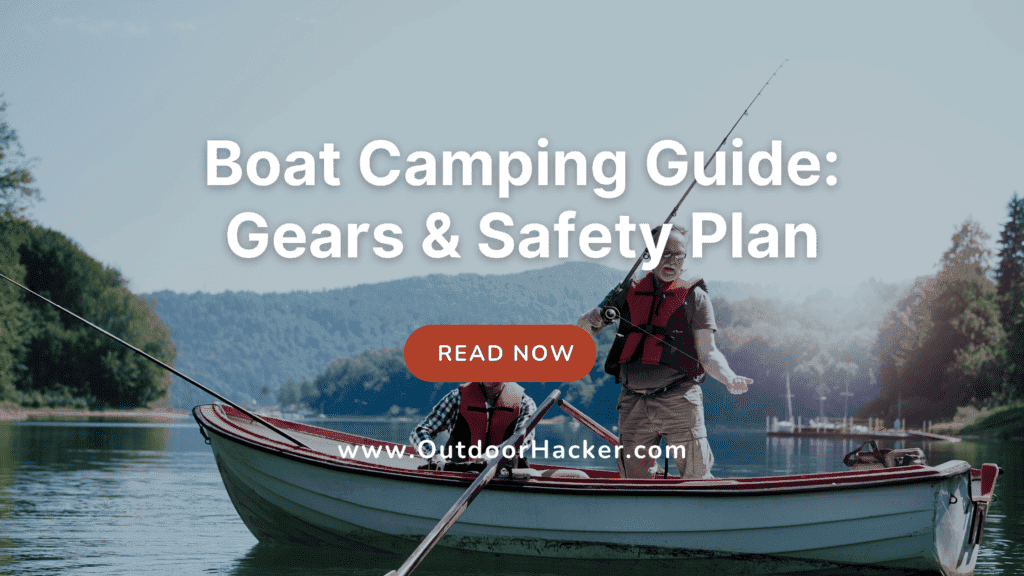Where did you sleep on your last camping trip? Perhaps you cleaned out the back of your car, used the old-fashioned tent method or got adventurous with a hammock. Have you ever considered hitting the hay on your boat?
Whether you treat your vessel as a camper or a means to reach your destination, this recreation style has unique perks — and guidelines you must follow for the most enjoyable, safest trip. Here are your answers to the what, why and how of boat camping to help you plan your next adventure.
Table Of Contents
What Is Boat Camping and What Makes It Unique?

Boat camping, as the name implies, means heading out in the wild with your trusty water vessel. It takes two primary forms:
- Sleeping under the stars on your boat: Many people who choose this option buy or rent a pontoon boat or a large enough vessel to have an inside sleeper cabin.
- Boating to a remote campsite: Sometimes, you want to reach an island, peninsula or archipelago that isn’t readily accessible by land. You can also spend the day on the water and pitch a tent on any beach that allows public camping.
Boat camping is unique for several reasons. One is the sensory experience. If you sleep on your vessel, the motion of the waves will gently rock you through the night like a baby in a cradle. While some people find the sensation unpleasant, most find it relaxes them and eases insomnia.
Another unique aspect is the night sky. While a true way to get an unfettered view is to venture into the ocean, nearly any boat camp takes you far from the nearest light pollution source. That first glimpse of the Milky Way in all its glory makes the trip worth it.
Types of Boats for Camping:
There are various kinds of boats which are frequently used for camping. Here are a few:
- Canoes: Canoes are popular choices for camping trips due to their versatility and ease of use. They’re stable, simple to paddle, and can hold plenty of gear – ideal for long journeys across water!
- Kayaks: Kayaks come in various styles, such as sit-on-top or sit-inside. Ideal for solo excursions and small group excursions alike, kayaks offer excellent maneuverability in both calm and turbulent waters.
- Inflatable Boats (Dinghees): Inflatable boats (also referred to as dinghies) are lightweight and portable, making them great for camping trips or other excursions. Their design enables easy inflation/deflation making these vessels typically constructed of durable PVC or Hypalon materials.
- Pontoon Boats: Pontoon boats offer spaciousness and stability, making them the ideal solution for camping trips with larger groups or families. Pontoon boats provide a relaxing yet comfortable experience on the water.
- Jon Boats: Jon boats are flat-bottomed boats designed for use on calm waters like lakes or rivers. Jon boats can be tailored specifically to your camping needs for maximum functionality and versatility.
- Motorboats: Motorboats offer faster travel while being capable of transporting more gear than other forms of boats, making them perfect for camping trips that cover long distances.
Consider factors such as the type of water you will be traversing, how many people and items will need to be accommodated onboard, as well as your level of experience when selecting a boat for camping adventures.
What is Boat In Camping?

Boat-in camping refers to a form of camping where individuals or groups reach their campsite by boat, instead of driving or hiking there. Campers use boats as transportation between bodies of water such as lakes or rivers and their designated camping area – this kind of camping activity being particularly prevalent near bodies like rivers or lakes that allow boating activities as well.
Boat-in camping provides a unique and often more secluded camping experience than its more conventional counterpart, though additional planning and equipment must be procured for transporting gear and supplies in this unique form of camping!
Benefits of Boat Camping:

Why else should you consider boat camping for your next adventure? Here are some of the many perks of this form of recreation.
1. Expand Your Recreational Options
While you can have plenty of fun at a dry camp, boat camping opens up a world of new recreational possibilities. You might engage in swimming, fishing, watersports, snorkeling and more.
Additionally, the proximity of water makes land-based activities more palatable in the summer, especially if you live somewhere like Arizona, where temperatures regularly soar into the triple digits. You could hide in the AC all summer or enjoy family games of cornhole on the beach, punctuated by frequent dips to cool your core body temperature.
2. Explore Fun Locations You Couldn’t Otherwise Reach
Another reason to opt for boat camping is to visit unique locations you couldn’t otherwise get to. For example, Sand Island Marine Park is a manufactured island near Portland that offers primitive camping, short nature trails and grassy areas. You and the family can spend the day exploring the Alberta Arts District before retreating to your quiet, cozy campsite on the isle.
Other locations, like the Thousand Islands region on the St. Lawrence River, remain equally inaccessible to campers unless you have a boat. Getting to these sites creates a truly wild experience and is perfect for those looking to ditch the crowds. Water acts like a moat to keep most visitors at bay.
3. Enjoy Beautiful Waterfront Views
Research suggests that people who live or spend considerable time around the water have lower stress levels and improved mental health. With soaring rates of anxiety and depression, treating yourself to a gorgeous waterfront view for the weekend qualifies as self-directed therapy.
4. Have a Perpetual Water Source
One of the heaviest supplies campers must carry is water. It weighs over 8 pounds per gallon, and you need at least that much per person per day, more if traveling in desert regions. While you may have to purify it, boat camping on or near freshwater guarantees a continual source, sparing your aching back from lugging it.
5. Fewer Creepy Crawlies
It’s nearly guaranteed that you won’t end up with a snake in your sleeping bag if you anchor and take shuteye on your boat. Just use care not to park directly beneath a grove of mangroves — some species take the plunge from branches as high as 25 feet.
Boat Camping Essentials:

What essentials do you need for your boat camping adventure? Here’s a quick guide to what you need to know, from choosing your vessel to heeding the requisite safety and legal guidelines.
1. Finding Boat For Perfect Boat Camping
If you don’t yet own a boat, consider renting one for your first camping adventure. You can try on various vessels for size, informing you of your likes and dislikes if you later choose to buy.
Are you planning on sleeping under the stars? If so, a pontoon boat offers considerable stability because of its wide, flat base. Are insects a concern? A vessel with an enclosed sleeping cabin will keep you bite-free.
If you own your boat, thoroughly clean it before your trip. It’s also smart to take supplies with you to tidy up your vinyl before laying your sleeping bags out on it. Wiping the area with a bio-safe cleaner free of harsh chemicals can help prevent mold growth or surface corrosion that comes from exposure to salt water and humidity. Make sure to rinse the area thoroughly with clean water and finish with a vinyl protectant.
2. Stocking Your Boat Camping Gear
You’ll need more than a well-stocked cooler when out on the water. The essentials you need for boat camping vary depending on whether you bed down on the water or land, but here are a few things everyone needs:
- Lifejackets: Ensure there’s one for everyone on board, plus an extra or two. Shop From Amazon
- A first-aid kit: Go heavy on supplies for bleeding injuries, as the risk of bleeding out miles over the water from the nearest hospital is a real threat. Shop From Amazon
- Fire-making materials: Every camper needs a fire kit. While waterproof matches, lighters and containers help, you should master a flint and steel for guaranteed flames regardless of wet conditions. Shop From Amazon
- Tools: What happens if your boat breaks down, leaving you stranded like Gilligan and company? The right wrenches could get you back to shore without calling for rescue. Shop From Amazon
- Water and water purifiers: If you’re heading out on fresh water, your purifiers serve as a backup water source, although it’s always wise to carry a few bottles with you. If you’re on the ocean, you must stock your vessel with H2O. Shop From Amazon
- Lights: Flashlights, headlamps and lanterns all serve different purposes. Headlamps keep your hands free, which is helpful if performing work after dark. They also come in handy as visual distress signals. Shop From Amazon
- Anchors and line: You’ll need to securely anchor your vessel to avoid floating away in the night. Shop From Amazon
3. Boat Camping Safety Rules and Regulations
Ensure you familiarize yourself with boating rules and regulations before hitting the water. While some jurisdictions place no restrictions on taking safety courses before buying a vessel, some rental facilities require training. Take advantage. Otherwise, familiarize yourself with the rules, such as how to use a flashlight as an emergency signaling device by shining it four to six times per minute if the one on your vessel malfunctions.
Fortunately, technology now makes your life easier. You always have your phone, even on your boat. Therefore, download the USCG Boating Safety App for instant access to the rules on the go.
Make the Most of Boat Camping
Boat camping opens doors to new adventures. You can travel to places you can’t reach by foot and enjoy unparalleled quiet, complemented by stunning waterfront views.
Use this guide to plan your next boat camping adventure. Now that you know the what, why and how, you’re ready to select your vessel and take her out to your favorite recreational area.








